
Pulse+IT's weekly weekend round-up of international health IT and eHealth news:
More than half of hospitals hit with ransomware in last 12 months
Healthcare IT News ~ Tom Sullivan ~ 07/04/2016
As many as 75 percent of U.S. hospitals responding to a poll this week could have been hit with ransomware in the last year, according to the new Healthcare IT News and HIMSS Analytics Quick HIT Survey: Ransomware, and a chunk of those might not even know it.
GP IT suppliers agree to standard open APIs
Digital Health News ~ Rebecca McBeth ~ 07/04/2016
England’s four principal GP IT system suppliers are committed to developing standard open APIs and are working on a plan detailing when they will be released, NHS England has said.

Pulse+IT's weekly round-up of Australian and New Zealand health, IT and eHealth news:
Delay fears for new kids’ hospital
The West Australian ~ Daniel Emerson and Gareth Parker ~ 08/04/2016
The Australian Medical Association has aired doctors’ concerns that Perth Children’s Hospital will not open by the end of the year as forecast and called for an end to the “secrecy” surrounding the delays.
More than 900 fire door frames to be replaced at Perth Children's Hospital
ABC News ~ Staff writer ~ 08/04/2016
More than 900 fire door frames will have to be replaced at the new Perth Children's Hospital (PCH) because they do not comply with Australian standards, West Australian Health Minister John Day has confirmed.

Newly listed health informatics firm Alcidion Group has won a contract with the Northern Territory to roll out its critical test results management system across all inpatient wards at Royal Darwin and Alice Springs hospitals.
NT Health has been trialling the new system, which is part of Alcidion's Miya ED solution, in its emergency departments since last year. It allows abnormal pathology and radiology results to be forwarded to the care team responsible for a patient and a tracking system to ensure results aren't missed.
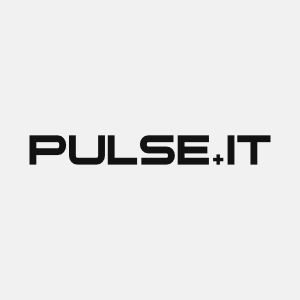
HIMAA and the National Centre for Classification in Health (NCCH) have sent out a call for abstract submissions for their annual joint conference, being held in Melbourne in November.
The theme this year is Health Information Management: At the Heart of Healthcare, with topics including EMRs, personal health records, implementation of health information systems, health classifications and coding, data quality, interoperability, clinical data management, clinical trials, data analytics and data documentation.


The Health Information Management Association of Australia (HIMAA) has called on the federal government to end what it says is a double standard in accepting migrants with lesser qualifications to fill shortages in the health information workforce.
The move comes as yet another tertiary-level course appears to have been cancelled, with Curtin University understood to have axed its online Bachelor of Science (Health Information Management) without informing current students.

Trial sites for the federal government's new Healthier Medicare package of reforms are expected to be announced in the next few months and are set to be based around Primary Health Network (PHN) boundaries, with the PHNs themselves given access to pooled funding arrangements with state and community-based service providers.
The bundled payments structure recommended by the Primary Health Care Advisory Group (PHCAG) may also support more widespread telehealth provision as part of a new approach to flexible funding, with GPs paid on an upfront monthly or quarterly basis for co-ordinating care for chronically ill patients.

The former CEO of the Australian Medicare Local Alliance (AMLA), Sean Rooney, has been appointed the inaugural CEO of the newly unified Leading Age Services Australia (LASA) organisation.
Mr Rooney will take over from Patrick Reid, who has headed LASA for the last three years. Formerly known as Aged Care Association Australia (ACAA), LASA represents many of the larger, for-profit aged care providers and is set to change its constitution to become a national organisation rather than a federation of state and national bodies.

Publicly listed medical centre provider Primary Health Care has lost its appeal against a 2014 decision that it could not trade mark its name, meaning the coast is now clear for the government's Primary Health Networks (PHNs) to call themselves by their full name.
The Department of Health advised PHNs last year that they would be smart to use just the acronym in their formal business and marketing material until the action was resolved.
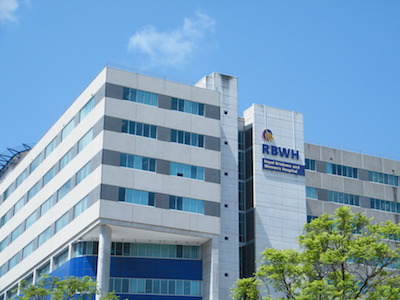
Orion Health has won a contract with Queensland's Metro North Hospital and Health Service to implement a new electronic referrals management platform to handle external and internal referrals to its hospitals and community health centres, including GP referrals.
Metro North includes Royal Brisbane & Women's Hospital, The Prince Charles Hospital as well as Caboolture, Redcliffe and Kilcoy hospitals and a number of community, indigenous and subacute services as well as mental health and oral health centres.

The new Royal Adelaide Hospital may not open this year following a default by the construction consortium on the agreed date for technical completion of the landmark building.
The state government has issued a major default notice against SA Health Partnership (SAHP), which is building the hospital as part of a public private partnership.
While it was known since last year that the hospital would not open before November, the issuing of the default notice is an official marker that the deadline had been missed.

The Australian affiliate of HL7 International has launched a new standards development initiative that it hopes will help overcome some of the frosty relationships that have dogged eHealth standards development over the last few years.
HL7 Australia has set up a technical steering committee (TSC) chaired by NEHTA's manager for standards and informatics Andy Bond, along with three initial work groups covering orders and observations, patient administration and medications, that it hopes will foster the development of HL7 standards independent from Standards Australia.

Queensland-based start-up firm Osler Technology has gone live on the Salesforce AppExchange with its Osler Clinical Performance Platform (CPP), which will allow hospitals to measure the clinical competencies and performance of staff.
Osler's CPP provides a standardised framework for recording, analysing, monitoring and benchmarking clinical procedures and workplace assessments. It has been trialled at three public and one private hospital over the last year and is also available on an individual subscription model.


Melbourne-based IT services firm Zynet is targeting the healthcare industry with its new secure email communication platform TraceMail, which allows users to control what happens to their emails even after they have been sent.
Zynet says TraceMail will enable doctors and other healthcare providers to share patient data and images via email in a simple and cost-effective way that still ensures compliance with the Australian Privacy Principles (APP). It comes as an add-on that is compatible with all email systems including Outlook, Gmail and Hotmail.

NSW Roads and Maritime has signed up with health system integrator HealthLink to use its SmartForms technology to streamline the submission of NSW Fitness to Drive medical assessments.
GPs will be able to complete a pre-populated form held in their practice software and submit it securely and directly to the NSW Roads and Maritime licence review unit immediately for review.



Pharmacy software specialist Fred IT will try out the first phase of its new MedView Medicines Workspace during the later stages of the northern Queensland trial for the opt-out model of the My Health Record.
First announced at the Australian Pharmacy Professional (APP) conference on the Gold Coast earlier this month, Fred's MedView Medicines Workspace will eventually allow doctors, pharmacists, hospitals and patients to have shared access to critical medicines information and services.

Auckland-based Orion Health has signed one of its first contracts for its new Amadeus precision medicine platform, agreeing with a US-base health insurance company to roll it out to the insurer's three million members.
Amadeus was launched last December as a big data platform to support Orion's move into precision medicine and combines the company's data integration capabilities with technologies such as Apache's Cassandra open source database management system, Apache's Spark big data processing engine and ElasticSearch, an open source search and analytics engine.

The Health Care Homes model that has been recommended to the federal government by the Primary Health Care Advisory Group (PHCAG) has the support of both the primary care sector and the general public, according to the final report from the group.
PHCAG was set up in June last year to develop advice to the government on how to reform the primary healthcare system and provide better management of patients with complex and chronic conditions. The remit included looking at new funding models and better use of technology as a vehicle for implementation of the recommended reforms.

The federal government will trial the introduction of a new package for primary care based on the Health Care Home model, backed up by IT tools such as the My Health Record (MyHR), telehealth and remote monitoring technologies, as well as bundled payments for GPs and tailored packages for individual patients.
The trial, involving about 65,000 people with chronic illnesses and up to 200 general practices, is aimed at testing the model as part of the government’s response to the review by the Primary Health Care Advisory Group, released today by its chair, former AMA president and current NEHTA chairman Steve Hambleton.
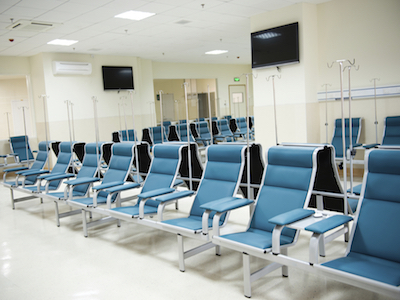
Pressure is mounting on the federal government to announce the names of the chief executive and board members of the new Australian Digital Health Agency (ADHA) in the next month as the prospect of a double-dissolution election nears, but no change is expected to the start date of July 1 even if the government is in caretaker mode.
Labor on the weekend demanded that the government consult with it on senior economic positions but this is not thought to include the establishment of the ADHA, which will take over responsibility for the My Health Record (MyHR, formerly PCEHR) and the role of the National E-Health Transition Authority (NEHTA), which will be dissolved.

Big data and the genomics revolution allied to the explosion in wearables and consumer health tools are the headline topics at the inaugural Digital Health Show, which will kick off in Sydney on Friday.
The show includes a one-day conference on Friday, a series of roundtables and workshops on Saturday and a three-day expo featuring many established and emerging health tech companies. It is co-located with a free Wellness Show aimed at the general public.

Medical emergency information and identification service MedicAlert Foundation has launched a revamped website with a new landing page for referrers, providing options for how to help patients and clients to sign up to the 24/7 service.
The not-for-profit organisation developed an online referral form last year to make it easier for GPs and other health professionals to refer patients to become a member, integrating it into MedicalDirector, Best Practice and Genie.

Australia's leading general practice software vendor MedicalDirector has been sold by owner Primary Health Care to a private equity firm for $155 million.
ASX-listed Primary Health Care announced last year that it was looking for a strategic partner or full buyer for MedicalDirector as part of a strategic review of its operations, with a number of interested parties conducting due diligence in November and December.

Pulse+IT's weekly weekend round-up of international health IT and eHealth news:
NY providers prepare for coming e-prescribing mandate
Health Data Management ~ Greg Slabodkin ~ 18/03/2016
Starting Easter Sunday, March 27, electronic prescribing for both controlled and non-controlled substances will be required in New York, making it the first state to require all prescriptions be created electronically. Physicians who fail to comply with the mandate face fines and imprisonment.
Hospital ransomware attacks surge; so now what?
Healthcare Info Security ~ Marianne Kolbasuk McGee ~ 23/03/2016
Ransomware attacks against hospitals are becoming commonplace this year, with at least five incidents revealed in recent weeks.

Pulse+IT's weekly round-up of Australian and New Zealand health, IT and eHealth news:
Dunedin GP presses key on South Island's millionth eReferral
NZDoctor ~ Bruce Lee ~ 24/03/2016
A Dunedin GP made the South Island’s millionth eReferral this week, marking a milestone for the South Island Alliance.
GP2U: smartphone app brings the doctor to your phone
The Australian ~ Chris Griffith ~ 24/03/2016
Fire up a smartphone app and you’re on your way to visiting a virtual clinic, even waiting in a virtual waiting room, before your appointment with a GP or specialist possibly thousands of kilometres away.
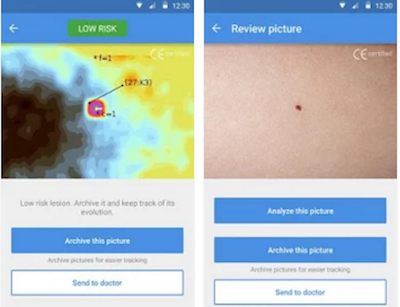
The developers behind the well-regarded SkinVision app have launched the technology in New Zealand, providing Kiwis with a quick and easy way to monitor and track the shape and appearance of moles in case of melanoma.
Aimed at people with a predisposition toward skin cancer, the app is scientifically proven and is backed by Europe's CE certification authority. First developed in Romania, the company is now based in the Netherlands and is currently awaiting FDA certification in the US.

NSW Health Minister Jillian Skinner will provide an update on telehealth capabilities in rural and remote NSW in her keynote speech at the 2016 Australian Telehealth Conference, being held in Sydney on April 28 and 29.
With a theme of bringing scale to telehealth in Australia, the conference will also feature a panel session with people with hands-on experience of large-scale telehealth provision, including neurologist and telehealth clinical lead Andrew Kornberg of the Royal Children’s Hospital in Melbourne, video consulting program director for Healthdirect Australia Chris Ryan, CEO of NZ's Homecare Medical Andrew Slater and GP2U founder James Freeman.

For the past decade, a growing and vibrant community of international eHealth experts with representation from 86 countries has been successfully collaborating to create an independent knowledge base of computable clinical specifications, ready to use and share in eHealth projects and health records.
Each clinical knowledge specification is based upon ISO 13606 and is freely accessible to anyone for download. Participation in the development of these computable specifications is also open to anyone with an interest in eHealth and with a willingness to share their knowledge amongst the community.

A security update released recently to resolve a vulnerability in the Microsoft .NET framework is potentially preventing clinical documents from being uploaded to or downloaded from the My Health Record (MyHR).
Microsoft issued a patch on March 8 to address the vulnerability, which was found in a .NET framework component and does not properly validate digital signatures in XML documents.

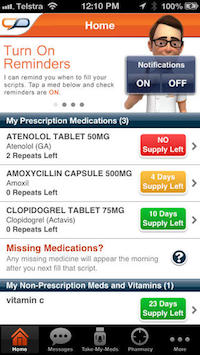
Medication adherence software specialist MedAdvisor has begun the first phase of its GP Link program, which will allow GPs to track their patients' adherence to medication and let patients request a prescription renewal on their smartphone.
Launched on the weekend at the APP conference on the Gold Coast, the new functionality represents what MedAdvisor CEO Robert Read calls the final building block in the company's integrated health platform that will connect patients, GPs and pharmacists.

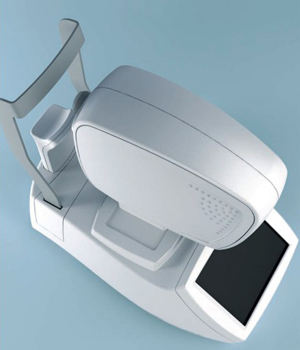
The WA Country Health Service has signed a partnership with Perth's Lions Eye Institute to provide early screening for diabetes-related vision impairment by telehealth.
Patients living in the remote Goldfields region of WA can now access early screening programs, with nurses and Aboriginal health workers in Leonora, Laverton and Norseman having been trained by Lions Eye Institute staff to use a digital retinography system (DRS) to carry out retinal screening.
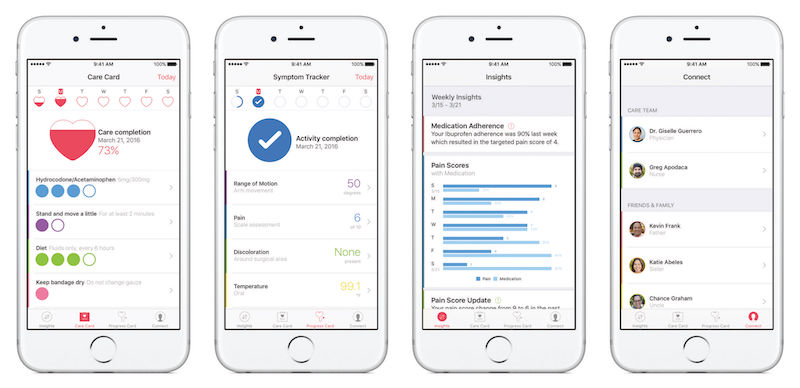
Apple has teamed up with genetic testing firm 23andMe to add “spit kit” capabilities to its ResearchKit framework, allowing patients who are participating in clinical trials using iPhone apps to submit their genetic information to the data collected.
The global giant will also release a new open source software framework called CareKit next month that is aimed at extending the capabilities of the ResearchKit platform to help developers build personal apps that allow patients to monitor care plans, medications and symptoms and take a more active role in their healthcare.

Irish patient engagement solution vendor Oneview had a successful listing on the Australian stock exchange last week, raising $62.4 million for a market capitalisation of $208.5m in what is one of the largest public floats of the year for a healthcare business.
While the company still runs at a loss it is gaining customers around the world, particularly in the US and Australia. Here, Oneview's point-of-care software solution has been installed at Chris O'Brien Lifehouse in Sydney, at Cairns Hospital in Queensland and with plans to be rolled out at the Children's Hospital at Westmead in Sydney shortly.
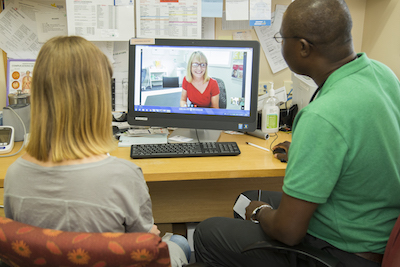
The NBN company has released a report into consumer views about telehealth as it gears up to spruik high-speed broadband as a way to improve telehealth provision, although only 21 per cent of those surveyed had heard of telehealth and most who had used it were doing simple online information searches rather than for video conferencing or communicating with a healthcare professional.
Most were using telehealth for its convenience, to better manage their own or their family's health, or due to the cost or inability to quickly see a doctor, but few said a slow internet speed was a barrier to using telehealth and less than a third said they would make more usage of telehealth if they had a better internet connection.

Northern Sydney Local Health District (NSLHD) is looking for a private health service to run a three-year GP-led chronic disease project involving care coordination, care planning IT tools and to obtain funding from a private health insurance provider.
NSLHD issued a request for tender (RFT) last month for a private health service provider to deliver the NSLHD integrated care project, which will involve GP-led chronic disease care coordination and the mandatory use of shared care plans and data sharing, along with a patient targeting and identification algorithm.

Pulse+IT's weekly weekend round-up of international health IT and eHealth news:
Hospital exec quits, compares $764m upgrade to Challenger disaster
New York Post ~ Michael Gartland ~ 16/03/2016
A senior official was so worried a new $764 million medical records system for the municipal hospital system was launching too early that he resigned, comparing it to the disastrous space shuttle Challenger launch in 1986.
Industry leaders question prevalence of information blocking
Health Data Management ~ Greg Slabodkin ~ 17/03/2016
Solving the issue of information blocking is one of the key tenets of federal initiatives to promote interoperability, but some industry leaders question how significant of an impediment the practice is in healthcare today.

Pulse+IT's weekly round-up of Australian and New Zealand health, IT and eHealth news:
Midlands joins ProCare and Pegasus in shunning enrolment system
NZ Doctor ~ Bruce Lee ~ 18/03/2016
Another PHO has joined ProCare and Pegasus’ stance on not activating the national enrolment service for their practices.
NBN to trial fibre to the pit technology
Computerworld ~ Stuart Corner ~ 18/03/2016
NBN has announced plans for a three-month trial, starting next month, of fibre to the distribution point (FttDP) technology, a cheaper alternative to fibre to the premises, but one that it does not expect to be commercially available until at least 2017.





eHealth NSW is planning to develop a business case to adapt its electronic medical record roll-out strategy for small sites such as multi-purpose services in rural and remote areas as part of its $48 million rural eHealth program.
eHealth NSW is just over a year into the program, which will see a number of clinical, corporate and infrastructure solutions rolled out to the six rural local health districts, including phases one and two of the Cerner EMR, electronic medications management, HealtheNet, the new ICU solution known as eRIC, the community health and outpatients system known as CHOC, universal wireless and the Health Wide Area Network (HWAN).

Sydney-based patient experience and analytics firm Energesse has unveiled what is thought to be the first real-time feedback technology with emotional analytics customised for the Australian setting.
The technology is aimed at help front-line staff as well as executives to gather and analyse patient experience data and improve quality and safety in Australian hospitals.
Developed by UK firm Membership Engagement Services (MES), the MES Experience technology is able to quantitatively measure patients’ feelings and emotions through free text feedback. Using the data, hospitals and healthcare services are able to monitor and adjust patient care as it happens following real-time analytics of patient surveys.
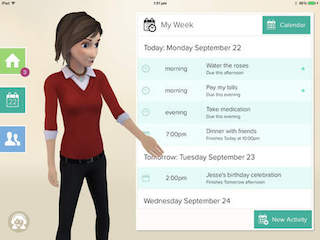
The Australian arm of global technology giant Konica Minolta has become a strategic partner and investor in Clevertar, the Flinders University spin-out that is developing embodied conversational agents (ECAs) for aged and community healthcare.
Clevertar has developed the Anna Cares platform that is aimed at community aged care providers as part of the care in the home market, as well as custom avatars such as Laura, an ECA that is being trialled as part of the My Diabetes Coach (MDC) study being run by the University of Melbourne, the Bupa Health Foundation, Roche Diagnostics and Diabetes Australia.

The Pharmacy Guild will begin a nationwide roll-out of the MedsASSIST real-time monitoring system it has developed for tracking sales of over-the-counter medications containing codeine in the next fortnight.
The Guild plans to officially launch the web-based platform at its annual APP conference on the Gold Coast this weekend before beginning the roll out to members, a Guild spokesman said.
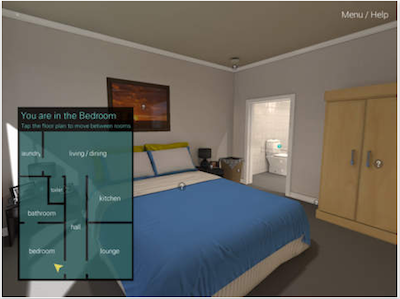

The implementation of the electronic patient administration system (EPAS) in South Australian hospitals is continuing to cause extreme frustration for clinicians, with evidence of problems plaguing the system continuing to mount amid fears that a contingency plan for a hybrid paper record will have to be put in place before the opening of the new Royal Adelaide Hospital in November.
Clinicians from hospitals where EPAS has already been implemented, including Noarlunga, Port Augusta and the Repatriation General, along with an SA Health insider, have told Pulse+IT that despite constant complaints over bugs with the system and what they term its clunky and cumbersome user interface, “complaint fatigue” is starting to take hold as few improvements are made.

It may be a brave government or a foolhardy one that commits to investing billions of scarce healthcare funds into digital technologies only a decade after having been seen to have squandered a similar amount, but that is exactly what the UK government did only a few weeks ago when it announced it would spend £4.2 billion ($A8 billion) to realise an ambitious vision of personalised healthcare in the National Health Service.
That vision, called Personalised Health and Care 2020, was heavily guided by Tim Kelsey, the new kid on the block at Telstra Health who has been lured to Australia from his role at the NHS just as the framework is embraced by the UK government.

Melbourne digital health firm HealthKit raised a few eyebrows in the close-knit but fiercely competitive practice management software sector recently when it announced it had raised $1.6 million in a Series A capital raising.
Established in 2012 and best known as the small company with the same name as the health app development platform launched by Apple last year, it was not necessarily the entry of a new online practice management software company that caught everyone's attention but the numbers it was touting in terms of users and listings in its directory.

Orion Health has partnered with the Waitemata District Health Board, the University of Auckland and the Ministry of Business Innovation and Employment to launch what is thought to be one of the largest public-private research programs investigating the potential of health IT in New Zealand's history.
The NZ government will commit $14 million over seven years to the Precision Driven Health research program, with industry and end-users committing another $23.8 million. Orion Health founder and CEO Ian McCrae is also chipping in some money personally.

Pulse+IT's weekly weekend round-up of international health IT and eHealth news:
Frustrations linger around electronic health records and user-centered design
Healthcare IT News ~ Mike Milliard ~ 10/03/2016
Electronic health record usability might not have been the hottest topic at HIMSS16 this past week – our polling shows big data and interoperability tied for that honor, with privacy/security just nudging population health for the second spot – but it was certainly top of mind for many.
Senate bill imposes limits on FDA regulation of apps, software
Health Data Management ~ Greg Slabodkin ~ 10/03/2016
The Senate health committee on Wednesday approved a bill that would exempt low-risk medical software and mobile apps from regulation by the Food and Drug Administration, so as not to stifle innovation by developers.

Pulse+IT's weekly round-up of Australian and New Zealand health, IT and eHealth news:
Qld hospital first to go digital
Nine News ~ AAP ~ 11/03/2016
Queensland now boasts the first fully digitised hospital in Australia.
IBM wins another extension to $1bn Human Services deal
ITNews ~ Staff writer ~ 11/03/2016
The contract means IBM will continue to support key Human Services programs like myGov, Centrelink and Medicare, among other hardware and software support services.

Rural GPs in South Australia have again raised the alarm over problems with the Electronic Patient Administration System (EPAS) being rolled out to SA hospitals, leaking a letter to the media that lists a host of problems with the under-fire system, from unintuitive screens to excessive time for progress notes to real dangers from medication drop-down menus.
The Adelaide Advertiser reported today that the Flinders and Far North Doctors Association (FFNDA) had written to SA Health CEO David Swan outlining 37 different problems they had experienced with EPAS, following two years of using the system at Port Augusta Hospital.

Canberra-based Citadel Health has rejected reports describing the Auslab laboratory information system used by Queensland Health as at the end of its life, saying it is a core product within the company's solution suite that Citadel will continue to invest in.
Auslab has been used by Queensland Health for 20 years for its public hospital pathology services. First developed by PJA Solutions, which was acquired by Citadel Health last year, Auslab is used in conjunction with a results viewer called Auscare, and is one of the few lab systems on the market that has integrated billing.
A spokesperson for Health Support Queensland confirmed that Queensland Health is planning to undertake an open tender process for a new laboratory information system (LIS) this year, with the budget estimated to be between $50 and $100 million.

Australian Hearing has signed on as the first healthcare provider in Australia to use HealthLink's new SmartForms solution, which will allow GPs and other health professionals to make an instant electronic referral to one of its 450 services around the country.
HealthLink is rolling out SmartForms to its 11,500-site network in Australia. Almost all of the major practice management systems used in Australia and New Zealand have implemented the technology or are in the process of doing so.

The Health Information Management Association of Australia (HIMAA) is holding its inaugural awareness week for health information management next week, declaring that health information management professionals are ready to come out of the closet and up from the dungeons to introduce themselves to the wider health system and the public in general.
The week will see HIM professionals in over 30 sites offering hospital tours, lobby displays, information sessions and quizzes to get the HIM message out of the 'dungeons’ – as many refer to the basements in which they are invariably ensconced – to the public and to colleagues in their own health facilities.

The NZ government has signed a $300 million contract with CPB, formerly known as Leighton Contractors, to begin construction of the new acute services building for Christchurch Hospital, due to open in 2018.
The contract is part of the overall $445 million rebuild of the hospital, with enabling works and foundations for the acute services building already been completed under a separate contract.
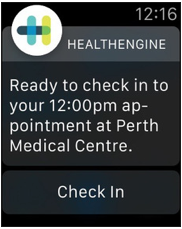
Online appointment bookings and directory service HealthEngine has launched what it is calling Australia’s first Apple Watch app to find and book health appointments.
Patients can search for a nearby appointment from their wrist and once an appointment is found, they can then use the Handoff function to finalise the booking via their mobile.

What was formerly known as the eHealth Practice Incentive Program payment (ePIP) has become the PIP digital health incentive as the federal government goes live with a revamped My Health Record website.
Most references to 'eHealth' are being scrubbed in favour of the term 'digital health', including on the new website and on the record itself.

Health IT firm Whanau Tahi has released version 4.2 of its Connected Care platform, featuring secure inter-provider messaging for care teams and access to completed InterRAI assessments for over 65s.
Whanau Tahi is a subsidiary of Auckland-based health provider the Waipareira Trust. Last year, it bought the assets of shared care plan provider HSAGlobal, which marketed the Connected Care Management Solution (CCMS) used for over 160,000 patients in New Zealand, Australia and Singapore with chronic and complex needs.

UK-based software and services provider EMIS Health has confirmed that it is withdrawing its acute care operations from Australia and New Zealand by December 2017, including technical support for products such as Ascribe's Symphony emergency department system.
EMIS Health, which bought the assets of Ascribe in 2013 for over $100 million, will only be active in the region through the joint contract it has with CSC to provide the combined medical and dental record for the Australian Defence Force.

The opening of the new $2 billion Sunshine Coast University Hospital being built at the Kawana Health Precinct will be delayed until April next year to ensure the commissioning problems experienced at other major hospitals such as Lady Cilento Children's and Fiona Stanley hospitals are not repeated.
Sunshine Coast Hospital and Health Service chief executive Kevin Hegarty said the decision was consistent with the advice of an independent commissioning adviser appointed last year and will ensure a safe and clinically robust commissioning process.

Former UnitingCare Queensland executive director and one-time head of the PCEHR review panel Richard Royle has been appointed as start-up adviser to the new Australian Digital Health Agency (ADHA).
The agency is due to begin operations on July 1, taking over the role of the National E-Health Transition Authority (NEHTA) – which will be dissolved – but also responsibility for the development and operation of the My Health Record, among other eHealth initiatives. The Department of Health will maintain an eHealth policy development role.
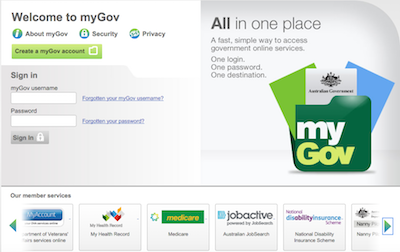
The Australian National Audit Office (ANAO) is looking for public contributions to a performance audit it is conducting into the implementation of the myGov digital services platform by the Department of Human Services (DHS).
To be tabled later this year, the audit will involve an independent and objective assessment of the administration of myGov, which has come in for sustained criticism about usability and stability problems for many of its elements, including early difficulties signing on to the PCEHR – now known as My Health Record – and freezes and drop-outs when trying to lodge tax returns or Centrelink information.

Pulse+IT's weekly weekend round-up of international health IT and eHealth news:
Stars are aligned' for health IT - Freeman
Digital Health News ~ Staff writer ~ 03/03/2016
Health ministers are “completely behind” the digitisation of health and social care because “it is urgent for personal care, it is urgent for safe care, and it is urgent for research”, life sciences minister George Freeman has said.
mHealth4Afrika takes on maternal health
eHealth News ZA ~ Sikhumbuzo Hlabangane ~ 03/03/2016
mHealth4Afrika has received a €3 million Horizon 2020 grant to create an app for managing patient information within the public healthcare sector.
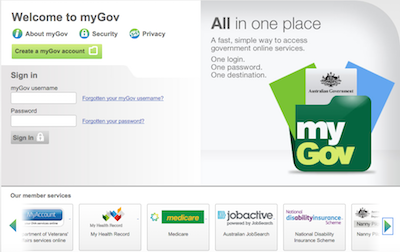
Pulse+IT's weekly round-up of Australian and New Zealand health, IT and eHealth news:
MyGov to feel the audit blowtorch
The Canberra Times ~ Noel Towell ~ 03/03/2016
Frustrated users of the troubled myGov web portal now have the chance to contribute to an official review of the government web portal's performance by the Commonwealth's Audit Office.
New secure health email system prevents accidental leaks
NZ Doctor ~ Bruce Lee ~ 03/02/2016
Secure messaging platform hMael is now fit for purpose and fully operational, after ending its auditing process and beta-testing phase this January.

More than 100,000 patients are now hooked up to patient portals but the growth in general practices offering the technology continues to be slow, with 277 or about one in four practices providing a portal service.
Health Minister Jonathan Coleman said that in the last quarter of 2015, the number of registered portal users increased from 93,000 in September to 107,034 in December. Six extra practices began offering a portal in the period.
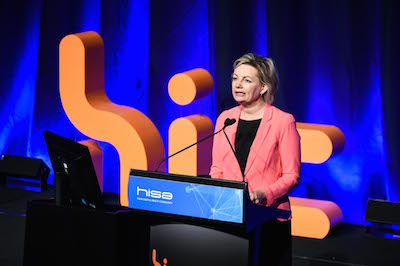
The federal government is claiming that annual savings of $2.8 billion through reduced adverse events and test duplication – as well as 5000 lives – are possible if all Australians sign up to the My Health Record.
Officially launching the renamed PCEHR in western Sydney today, Health Minister Sussan Ley said proper use of the system could see potential savings of $7.6 billion and improved value and efficiency in healthcare expenditures by 2020 by reducing medical duplication and adverse events.
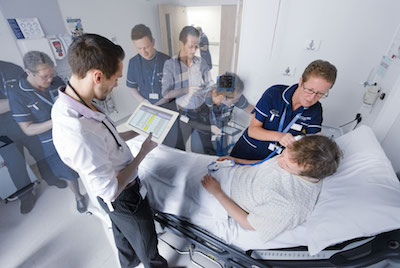
The Health Informatics Society of Australia (HISA) has released a draft of Australia's first professional practice standard for eSafety, aimed at assuring patient safety in the implementation of eHealth.
While Australia has yet to get to the litigation stage over patient harms caused by a health IT system, issues such as the development of software as a medical device and the acknowledgement that IT safety, like IT security, should be primary rather than an afterthought have led to the development of guidelines for health informaticians and organisations on standards for professional practice.

Victorian aged care assessment teams (ACATs) will begin using the My Aged Care system for referrals from next Monday with South Australia to join a week later as part of moves to streamline and digitise all referrals to Commonwealth funded aged care services.
However, general practitioners continue to complain about the system, with the ability to write and send a referral from within their desktop software not yet on the horizon and a webform still the most likely interim measure.

Tasmanian-based telehealth provider GP2U has developed three patient videos explaining the new hepatitis C medications that became available on the PBS yesterday, adding to the decision support tool it has created for GPs to help raise awareness of what is a remarkable breakthrough in treating the virus.
GP2U is also able to organise the mandatory specialist approval for the prescription as part of its offering to patients who choose to use its telehealth service if their regular GP is not available or the demand for appointments at liver clinics is too great. Approximately 230,000 Australians have the virus.

Listed medical centre and diagnostic provider Primary Health Care has established a private billing division that will be run separately from its large bulk billing medical centre business following a restructure of the company's executive management.
Henry Bateman, son of the late founder Ed Bateman and formerly general manager of the medical centres division, has left the company for personal reasons, allowing CEO Peter Gregg to separate it into a bulk billing division led by GP and current chief clinical officer John Houston, and a private billing division led by former Qantas executive Maxine Jaquet.
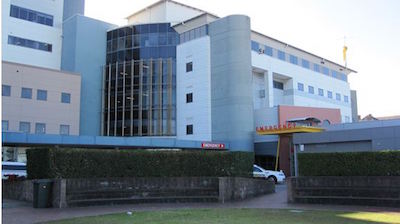
Researchers from the Australian Institute of Health Innovation (AIHI) at Macquarie University have launched a five-year study to establish how technology can be used to reduce cases of incorrect and missed pathology test results in hospitals.
Led by the AIHI's Associate Professor Andrew Georgiou, the study is an international first and will be conducted by the AIHI in partnership with the Australian Commission on Safety and Quality in Health Care (ACSQHC), the Royal College of Pathologists of Australasia (RCPA) and public pathology service South Eastern Area Laboratory Services (SEALS), part of NSW Health Pathology.

The Royal College of Pathologists of Australasia (RCPA) has received federal funding to continue work on its Pathology Information Terminology and Unit Standardisation (PITUS) program, including work on conformance testing for software systems to assist with the My Health Record roll-out to pathology providers.
The college adopted new guidelines developed by PITUS as policy in 2014, and has now received funding from the federal Department of Health to continue the project to develop informatics standards for safer and better pathology requesting and reporting. It will also help facilitate the uptake of the standards by pathology practices.

Health informatics platform vendor Alcidion has officially listed on the stock exchange with an initial market capitalisation of $33.7 million and $7m cash on hand.
The Adelaide-based company had expected to list last month but was held up by the numerous listings scheduled for the ASX before and after Christmas, Alcidion's executive vice president Nathan Buzza said.


Healthcare practitioners who use a virtual desktop for remote access to their clinical software while visiting patients report being unable to use the My Health Record on-site because of the kind of public key infrastructure (PKI) dongles supplied by Medicare for authentication.
The inability to access the system on-site means GPs are unlikely to write shared health summaries (SHSs) for patients in residential aged care or community care, despite these patients being the most likely to benefit from better information sharing. It may also affect their eligibility for the eHealth Practice Incentives Program (ePIP).

Researchers from Monash University are developing a cuffless blood pressure estimation device that can be worn around the clock and send readings over the internet in real time.
While the device is not at commercialisation stage yet, the designers – associate professor of biomedical engineering Mehmet Yuce and PhD student Dilpreet Buxi – are currently considering industrial partnership options to bring it to market.
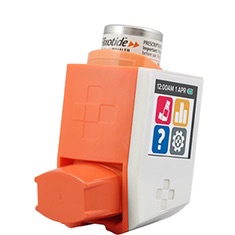
Auckland-based respiratory disease device and monitoring system maker Adherium has signed an agreement with the Medical Research Institute of New Zealand (MRINZ) for the supply of its Smartinhaler devices and software for an international clinical study.
The Smartinhaler platform will be used in a randomised control trial of the efficacy and safety of an ICS/LABA reliever therapy regimen in asthma. The study will take place in New Zealand, Australia, the UK and Italy.



Pulse+IT's weekly weekend round-up of international health IT and eHealth news:
EPR implementation led to 'catastrophic loss of confidence'
Digital Health News ~ Rebecca McBeth ~ 25/02/2016
Problems with the introduction of the Epic electronic patient record at Cambridge University Hospitals NHS Foundation Trust led to a catastrophic loss of confidence in the system that took months and a “huge amount of effort to rebuild”, the president of the Royal College of Surgeons has said.
Cerner, IBM, Epic, Verily, others sign on for Obama’s Precision Medicine Initiative
Healthcare IT News ~ Jessica Davis ~ 25/02/2016
Leading health IT vendors get in precision medicine game at White House Summit, including Allscripts, athenahealth, McKesson.
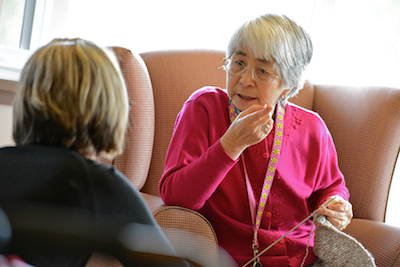
Pulse+IT's weekly round-up of Australian and New Zealand health, IT and eHealth news:
Home doctor service to pitch direct to patients
Medical Observer ~ Julie Lambert ~ 25/02/2016
National Home Doctor Service is launching a national TV advertising campaign to pitch directly to patients for after-hours house calls.
Half of patients may face pathology gap fees
Australian Doctor ~ Alice Klein ~ 25/02/2016
One in two patients may be asked to pay a standard pathology gap fee of around $30 if impending cuts to bulk-billing incentives are enforced, say pathologists.

Auckland's Orion Health has partnered with global IT and consulting giant Cognizant to develop a new digital health platform combining Orion's clinical software and integration expertise with Cognizant's large reach in the health insurance software market.
Cognizant is launching the new platfom, called Cognizant Health TranZform, at the HIMSS conference in Las Vegas this week. Aimed predominantly at the US market, Cognizant says the new platform will help consumers make more informed decisions about the cost and quality of their care, while enabling healthcare providers and insurers to increase consumer engagement and operational efficiency.

The University of Auckland is hosting the second annual Health Hackathon next month, again aimed at encouraging the development of new concepts and technologies for people self-managing health issues.
The Solving Self-care hackathon is designed to bring clinicians, patients and software developers together to volunteer to work on solving a problem together. It takes place over a weekend, with ideas pitched on a Friday evening and collaborators decided, following work on the project for the following two days. Judging takes place on Sunday afternoon.

Queensland-based start-up firm Osler Technology is about to go live with a commercial launch of its procedural and clinical “passport” platform, complete with a custom-built app that will allow clinicians to log their procedures and progress at the bedside.
Aimed predominantly at junior doctors, paramedics and nurses and the institutions that hire and train them, the technology has been trialled by four hospitals in Queensland and in a separate pilot by individual users on four different continents, part of founder Todd Fraser's plans for a global, portable system for credentialing.

An independent evaluation of the Northern Territory's telehealth trial has recommended that the project continue and that the telehealth network be developed further until the services are embedded into routine practice.
The NT Department of Health began the trial in June 2014 to provide telehealth services to clinics in the Katherine, Barkly and Central Australian regions from hospital specialists in Alice Springs, Katherine and Darwin.

Queensland Health will hold its inaugural eHealth Queensland Expo in Brisbane in late May, designed to showcase the latest in digital healthcare in the state.
eHealth Queensland acting CEO/CIO Cathy Ford said the one-day event would bring together clinicians, IT experts, vendors, start-ups and academia to focus on digital transformation in healthcare.
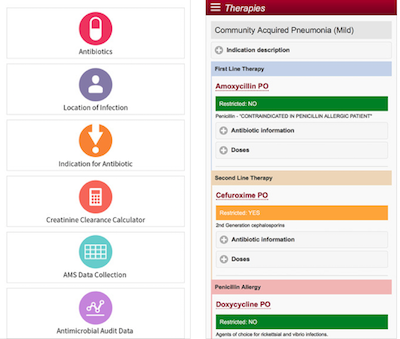
The developers behind the electronic Antibiotic Stewardship sYstem (eASY) used in several NSW local health districts have released a new app for point-of-care decision-making to support antimicrobial stewardship for medical, pharmacy and nursing staff.
Called the eASYapp, the technology complements the full eASY system that is used in hospitals in the Northern Sydney Local Health District (LHD) and the Murrumbidgee, Mid North Coast and Western NSW LHDs.

A new regulation making it mandatory for all community pharmacies to use the Project STOP methamphetamine precursor diversion system comes into force in NSW next month.
Project STOP is a real-time decision support and monitoring tool for over-the-counter pseudoephedrine sales, providing decision support to pharmacists and a tracking function for police.

South Eastern Melbourne Primary Health Network (PHN) has developed an easy-to-follow guide for practice managers and principals to help them understand and install the public key infrastructure (PKI) certificates needed to access and use Medicare online services and the My Health Record.
SEM PHN eHealth manager Brendon Wickham said PKI can be confusing and there was a need to provide clear information and instructions for installation more available.

The digitisation of Bendigo Hospital’s paper-based processes in advance of the roll-out of an electronic medical record and the overall integration architecture planned for the Victorian Comprehensive Cancer Centre (VCCC) are two of the highlights of the Healthcare Efficiency Through Technology conference being held in Sydney next month.
The conference will also include an update on eHealth NSW's rural and remote strategy, as well as a look at how the UK's National Health Service is using digital technology for better patient care with Tim Kelsey, former director of patients and information at NHS England and newly appointed commercial director with Telstra Health, and Tony Young, the national clinical director for innovation at NHS England.

The technology developed by NZ's Best Practice Advocacy Centre (BPAC) for GP eReferrals is being used by an Australian primary health network as part of a trial to improve health information sharing between the primary and secondary care sectors.
BPAC's solution is used by the five Midland district health boards – Waikato, Bay of Plenty, Taranaki, Tairawhiti and Lakes – and has clocked up over 900,000 eReferrals in the last five years.

The Hunter New England Central Coast Primary Health Network (HNECC PHN) is set to launch a two-month trial of a new eReferral system aimed at streamlining the referral process between GPs, private specialists and public hospitals, and is also exploring how to use the My Health Record system and NSW's HealtheNet architecture to improve information sharing between aged care facilities and the wider healthcare system.
The eReferrals project is tapping into the expertise of New Zealand's Best Practice Advocacy Centre (BPAC) for the technology. There are several eReferral systems in use in NZ, with the BPAC solution used by the five district health boards in the Midland region of the North Island to send over 900,000 eReferrals over the last five years.

Tasmanian GP and founder of the GP2U telehealth service James Freeman has released a free, open source decision support tool to help GPs navigate the various prescribing guidelines for the hepatitis C drugs newly listed on the PBS.
The tool allows GPs to calculate which drugs to prescribe and for how long, but also provides documentation that can be used to show specialists that all of the boxes have been ticked.

MedicalDirector is set to roll out version 3.16 of its clinical and practice management software, featuring new SmartForms technology from HealthLink along with a revamped recalls system and improved SMS capabilities.
The 'Connect' release is aimed at streamlining everyday tasks like recalls, messaging and SMSs, the company says. For recalls, which can be time-consuming and tedious, practices will be able to load and save search criteria, generate a recall list, and then bulk notify patients via SMS rather than having to contact them all individually.
Copyright © 2025 Pulse IT Communications Pty Ltd. No content published on this website can be reproduced by any person for any reason without the prior written permission of the publisher. If your organisation is featured in a Pulse+IT article you can purchase the permission to reproduce the article here.
Website Design by Get Leads AU.